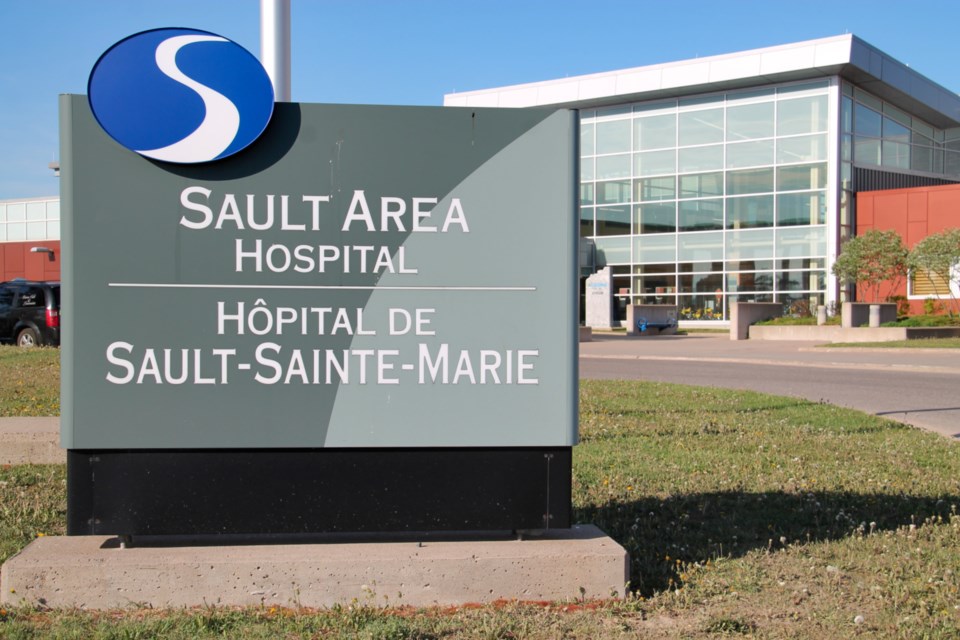On Thursday, the Ontario government announced $343,000 in ongoing operational funding for a new withdrawal management centre in Sault Ste. Marie.
Here’s what SooToday found out about the forthcoming facility.
This is the Level 3 withdrawal management facility. But don't call it that
The terminology has changed since Sault Area Hospital submitted its initial proposal for a 33-bed Level 3 withdrawal management facility in 2017. It’s now known as a ‘community-based addictions services centre’ or site for ‘residential withdrawal management services.’ Both terms were used in the information provided to media Thursday.
“This is the level-three facility – it’s just a different title now,” Sault Ste. Marie MPP Ross Romano said plainly during the funding announcement.
What will be offered at the new site?
According to Sault Area Hospital, the facility will house 20 short-term withdrawal management and safe beds. An additional four medical beds will be maintained at the hospital for patients requiring a more acute level of addictions care.
Some of the mental health and addiction services provided at the new site will be dedicated to withdrawal management and safe beds support, including:
- Comprehensive assessment
- Medically supported care, including medication assisted symptom and craving management
- Education on harm reduction, healthy coping, life skills, and relapse prevention
- Continuum of care treatment, planning and referrals
- Individual and group counselling and support
- Peer-support and self-help groups
The residential withdrawal management centre will be staffed 24 hours a day, seven days a week by a core team of dedicated clinical staff and support services, and supported by a multi-disciplinary care team which includes:
- Registered social workers and psychotherapists
- Registered addiction services workers
- Registered nurses
- Registered practical nurses
- Nurse practitioners
- Addiction medicine physicians
- Support services staff
On Thursday, Sault Area Hospital President and Chief Executive Officer Wendy Hansson said the hospital isn’t the “correct location” for its residential withdrawal management services. Due to COVID, capacity and space issues, Hansson says, there’s been a “reduced volume of capacity with that service.”
Where will it be located, and when will it open?
According to Romano, the new site is expected to be operational within 8-12 months.
The hospital says that the project team has identified one location that meets all criteria following a “comprehensive search of available spaces that meet the standards of care for this service.” The hospital still has to secure a lease agreement for the new site and receive a zoning amendment from the City of Sault Ste. Marie.
Romano says that an announcement surrounding the province’s capital funding will be coming in about a month from now.
Why only 20 beds?
Lisa Case, clinical director of mental health and addictions for Sault Area Hospital, says that recent enhancements to its mobile and outpatient mental health and addictions services – including the launch of the Community Wellness Bus, funding for a full-time nurse practitioner Rapid Access Addictions Medicine Clinic and the hospital’s work with the harm reduction hub – are intended to reduce the draw to residential treatment beds, where patients spend anywhere from 21 to 28 days or longer.
“Back in 2018 when we submitted the 33-bed proposal, these services weren’t even available. Quite frankly, they weren’t on the radar,” Case said.
Opioid death toll continues to climb in Algoma
According to the hospital, there have been 26 opioid-related deaths so far in 2021. According to CBC News, the chief coroner for the province has reported a total of 53 opioid-related deaths in the Algoma Public Health region last year, surpassing the total of 17 deaths for 2019 and eclipsing the region’s previous record of 26 opioid-related deaths in 2018.
Sault Ste. Marie Mayor Christian Provenzano expressed concerns Thursday that the opioid problem has become more acute over the years, adding that “our ability to deal with it has not kept pace with the size and nature of the issue.”
“There’s a lot more to be done here. We saw our opioid deaths increase significantly since 2017. They were up last year in northern Ontario, they were up last year in Algoma - they appear to be up this year,” Provenzano said.
